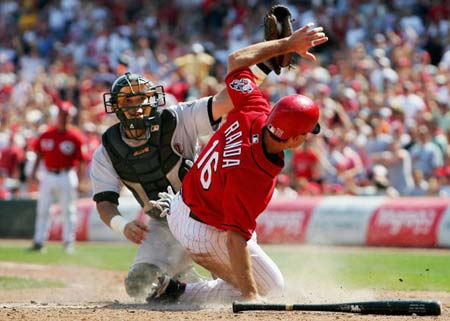Tennis psychology is far more than the effect of certain shots, made ormissed, on the player. One can sum up such things by saying that everykill gives confidence, every error tends to destroy it. These things arebvious. The branch of psychology that is interesting is the reaction on thevarious players of different courts, dififerent crowds, and other playershere is a peculiar atmosphere about the centre court at wimbledonthat is unique in my knowledge of the game. Certain players revel in it.The majority do not feel it, and since they do not sense it, they find onlythe material disadvantages of rather bad light, and much noise from thestand, and dislike the centre court. Personally, I enjoy playing on thecourt at Wimbledon more than any court I have ever stepped uponhe traditions of the great players of the past, the notable personagesake up the parties in the Royal Box and Committee Box, the honourof a visit from their ajesties the King and Queen, and, above all, thegenerous, non-partisan, sportsmanlike attitude of the British public, makeit a unique privilege to enter the centre court in championship competition.These things inspire the mind to an almost abnormal keenness. It is thisatmosphere that made N. E. Brookes, Anthony F Wilding, A. W. Gore, Rand H. L. Doherty more dangerous there than anywhere else. It is thisfactor that spurs on J. C. Parke and AR F. Kingscote to their greatesttennis to-dayThe great championship turf at Forest Hills, where the AmericanChampionship is held, offers a unique contrast to Wimbledon.The age of wimbledon is its great attraction. It is the spirit of youth, ofprogress, of business-like mechanical perfection of management, and theenormous crowds and attendant enthusiasm that is the chief attraction atForest Hills. Fully 15, 000 were present on the closing day of the event1919. Orderly, courteous, enthusiastic, but partisan, the American tennispublic comes out to cheer on its favourite. No people in the worldappreciate visiting players more whole-heartedly and none do more fortheir comfort than the American people. It is partisan, personal, sportingfriendliness, warmer yet not so correct as the manner of the British public.that the Americans give. We have much to learn from our British friendsYet I hope we will never sacrifice the warmth of feeling that at times mayrun away with us. vet in the main is the chief attraction of the americanpeople. It is this enthusiasm that spurs on the men to their greatest effortsin the National Championship

The Australian team Norman E Brookes, Gerald Patterson. RandolphLycett and R V. Thomas, who visited the United States. in 1919, scored aunique personal triumph. The whole gallery present at the notable matchm the Championship, when Patterson went down to defeat im a temfic 5-set struggle with W. M Johnston, rose and cheered Patterson as he walkedoff the court It was a real ovation; a tribute to his sportsmanship, and anoutburst of personal admiration. Brookes was the recipient of an equaldemonstration on his final appearance at Forest Hills. The stimulus of thesurroundings produced the highest tennis of which these men wereYet im all championships it is the personal element that is the movingfactor. Personalities are the deciding force in popularity. Patriotism ispartially submerged m personalityThe Davis Cup matches bring out the gamest struggles in the historyof tennis. It is im these unique series of matches that the fame of Anthony F.Wilding. Norman E Brookes, J C. Parke, B C. Wright M E. MLoughlin.and others reached its crest. It was the unselfish giving of ones best. underall conditions. for the honour of the country that called out the finest tennisin each man Parke reached his crest in his memorable defeat of BrookesLOughlin has never quite equalled his marvellousof 1914 againstBrookes and wildingIt is the psychology of patriotism that brings out this tennisPersonality is submerged. Unity of purpose as a team, replaces theobject of personal glory that is the keynote of championship.It is the frendly rivalry of sport, between such men as form thebackbone of tennis in each country. that does more for intemationalderstanding than all the notes ever written from the white houseI could go on writing tennis psychology as explained by extemalconditions for hundreds of pages, but all I want to do is to bring to mind adefinite idea of the value of the mind in the game. Stimulate it how youwill, a successful tennis player must admit the value of quick mind. Do itby a desire for personal glory, or team success, or by a love of competitionm matching your wits against the other mans, but do it some waDo, not think that tennis is merely a physical exercise. It is a mentalcock-tanl of a very high"kick
